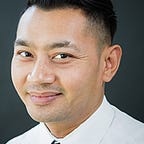Talking Technology with Engineers
“Contrary to the stereotype, I believe engineers love to talk about their work and are capable communicators. The key to effective dialogue with engineers is to take the time required to understand the technical and economic trade-offs inherent in virtually every engineering decision.”
Terry Gross, host of National Public Radio’s “Fresh Air”, titled her memoir of interviews, “All I Did Was Ask.” My projects for the Electric Power Research Institute allow me to role-play Terry Gross when interviewing developers of advanced power generation and energy storage technologies. Here are a few techniques I use when interviewing engineers:
First, make sure the interviewee knows your audience is their peers: engineers who will select, build, operate, and maintain power generation and energy storage technologies. Utility engineers want the details underlying system and component designs, real-world costs, and the measures taken to assure operating flexibility, reliability, and longevity. This may be different from the interviewee’s normal audience. For example, founders and CTOs of startups are accustomed to talking to investors with a “pitch deck.” They may focus on market size and technology performance in best-case scenarios while simplifying both costs and the technology itself. In contrast, project engineers frequently talk to co-workers and suppliers, and may describe their systems, equipment, and controls in detail using supplier or company jargon. Although suppliers and power companies may use unique names for processes and parts, an audience of engineers will understand the concepts if described in terms of role, function, and materials of construction.
Successful interviewing requires building rapport, being a good listener, and drawing out details at the right level to tell a full but easily digested story. Technology developers and plant operators are usually relieved to know you’ll share draft interview notes with them for review before publication, and often are willing to provide more information as a result. I ask clarifying questions, as needed, to be sure I understand their processes well enough to provide good drafts. Although technology developers will be guarded about their “secret sauce,” a middle ground between full disclosure and a black box can usually be found. Comparing and contrasting their technologies’ unique features with others known to the audience can help. I remind the interviewees of my interest in helping them put their technology’s best foot forward.
My goal to the audience is to describe technologies in matter-of-fact language, without marketing claims or opinions. Communication of engineering concepts is facilitated by diagrams, figures, tables, and graphs. The adage about a picture being worth a thousand words is certainly apropos.
If you are a technology developer I might interview, let me to offer a few tips. Start by explaining how your technology works, which aspects are based on proven components and materials and which aspects are novel or untested at scale, the steps remaining to market entry, and your plans for scale-up and cost reduction once the technology is commercial. After that, you can tell me how it stacks up against competitors. And keep in mind the audience’s priorities and bandwidth. They are keen on where you stand and what’s next, but may not have the time or interest to retrace the path that brought you to your current design.
In her book, Terry Gross wrote, “What puts someone on guard during an interview…is just the fear of being misunderstood.” When interviewing technology developers, my goal is to reassure them that my audience of engineers shares their interests: accuracy, context, and fair comparisons. This is an exciting time of transition in the power industry, with a great demand for concise, factual information on new technologies and their promise. I am fortunate to have the chance to facilitate communication among engineers. From my perspective, the process is fundamentally simple: All I do is ask.
Originally written by Rich Myhre, Frontier Energy — https://frontierenergy.com/blog/#talking-technology-with-engineers
